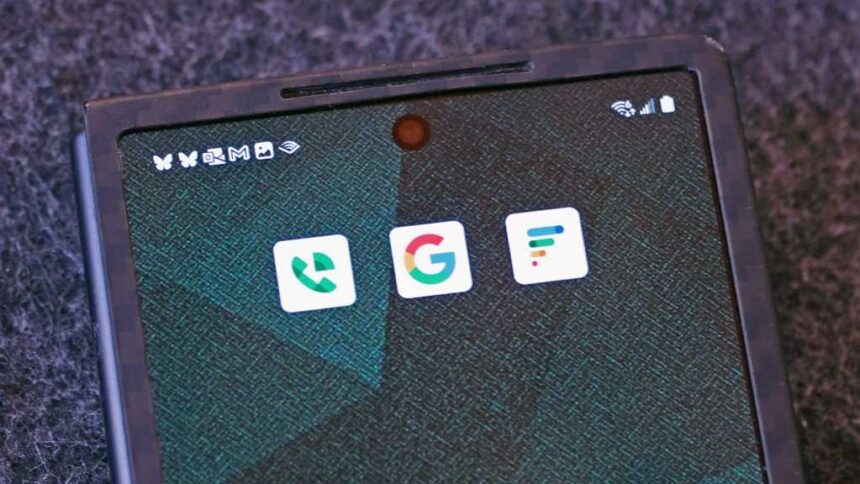Google Voice and Google Fi were once revolutionary services offered by Google that provided users with innovative and convenient ways to manage their phone calls and mobile connectivity. Google Voice, a number-forwarding service introduced in 2009, allowed users to have a unique phone number that could be used across multiple devices and platforms. It was a game-changer for individuals who needed a flexible solution for their communication needs. On the other hand, Google Fi, a mobile virtual network operator, offered competitive cell service options and international roaming capabilities for users in the United States.
As a tech reviewer who relied heavily on these services for professional purposes, I was an early adopter of Google Voice and Google Fi. The ability to text and call from a laptop or desktop PC using Google Voice was particularly appealing to me. Similarly, Google Fi’s affordable plans and compatibility with Pixel devices made it a convenient choice for my mobile connectivity needs. However, despite the initial allure of these services, I recently made the decision to part ways with Google Voice and Google Fi due to Google’s neglect and hypocrisy.
One of the primary reasons for my departure was Google’s failure to support Rich Communication Services (RCS) on Google Voice. Despite advocating for RCS adoption across platforms and pressuring Apple to integrate the modern texting standard into iMessage, Google Voice remained stuck in the past with outdated SMS capabilities. This inconsistency was not only frustrating for users but also reflected poorly on Google’s commitment to improving communication technologies. The lack of RCS support on Google Voice highlighted the company’s neglect of its own products and services, leaving users feeling abandoned and underserved.
Moreover, Google’s repeated attempts to create a messaging walled garden through various chat services like Google Talk, Google Wave, Google Buzz, Google+, Google Hangouts, Google Allo, and Google Chat further emphasized the company’s desperation to compete with Apple’s iMessage. Despite its extensive efforts to establish a dominant communication platform, Google’s failures in this regard were evident, making its criticism of Apple’s messaging ecosystem seem hypocritical and insincere.
In conclusion, my decision to part ways with Google Voice and Google Fi was driven by Google’s disregard for its own products, its failure to support modern communication standards like RCS, and its hypocritical stance on messaging platforms. As I transitioned to a new mobile carrier, I reflected on the years of integrated services I had enjoyed with Google and realized that it was time to move on to less aggravating alternatives. While Google may have revolutionized the way we communicate in the past, its recent actions have raised questions about its commitment to innovation and user satisfaction in the mobile connectivity space. I switched my number over to Verizon Wireless, and within minutes, I had RCS messaging capabilities on my Pixel phone. The transition was seamless, and I was finally able to enjoy the benefits of RCS messaging that Google had been touting for so long.
But the whole experience left a bitter taste in my mouth. Google, the company that prides itself on innovation and user-centric design, couldn’t even get its own services to work together properly. It took me switching to a different carrier just to access a feature that Google had been pushing for years.
It’s clear that Google doesn’t deserve my loyalty, or the loyalty of any user who values seamless integration and reliable service. If Google can’t even get its own messaging services to work together, how can we trust them to provide us with the best possible experience in other areas?
So, while I appreciate Google’s efforts to push Apple towards interoperability with RCS, I can’t help but feel a sense of disappointment in the company. It shouldn’t take years of frustration and unfulfilled promises for Google to do the right thing for its users. If Google wants to regain the trust and loyalty of its users, it needs to start by fixing its own house first. I recently made the switch to Verizon, and I must admit, I wasn’t thrilled about it. Somehow, Verizon was able to sign me up for their service without actually having a Verizon account, which resulted in me having to drive to a retail store to pay my first bill. It was a hassle, to say the least.
However, the one silver lining in this whole situation is that I was able to keep the phone number I’ve been using for the past 15 years. This was a relief, especially since I am now free from any Google service. Plus, I’ve noticed that I am now able to receive high-resolution photos and videos from my sister and brother-in-law, something that was lacking with my previous provider.
What baffles me the most is how Verizon was able to port my number in without any issues, when Google couldn’t do the same from one of its own services to another. I spent years pleading with Google for an answer, but to no avail. It’s frustrating to say the least.
I understand that this article may come across as me venting my frustrations, but I know that there are others out there who have had similar experiences with Google Voice and Fi. To those individuals, I urge you to consider making the switch away from Google. No company is deserving of your loyalty, and Google, with its hypocrisy and apathy, certainly deserves it even less.
In conclusion, while my experience with Verizon may not have been ideal, I am grateful for the ability to keep my long-standing phone number and to finally receive high-quality media from my loved ones. It’s a small victory in the grand scheme of things, but it’s one that I am thankful for. And who knows, maybe this switch will be the start of a better, more seamless communication experience for me. Only time will tell.








